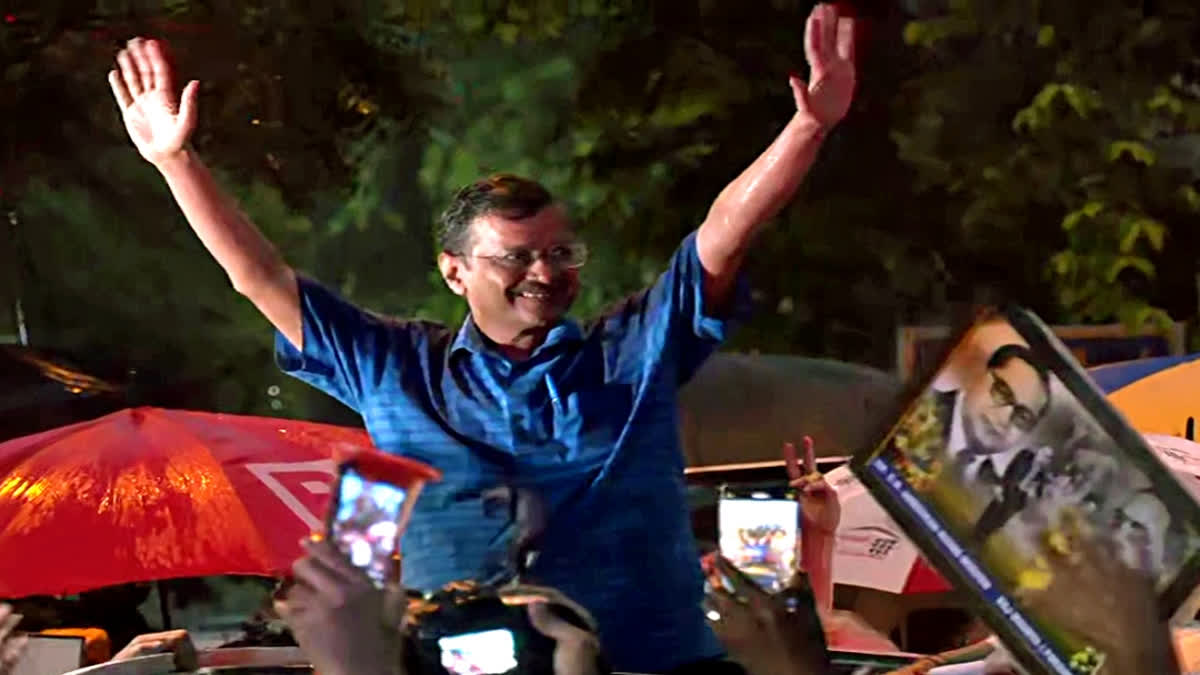New Delhi: The Supreme Court on Friday said Delhi Chief Minister Arvind Kejriwal has roots in the society and there is no valid reason to entertain the apprehension of his fleeing the country if bail is granted to him.
The apex court also rejected CBI's contention that Kejriwal should be sent to the trial court with his plea seeking bail in the corruption case lodged by the agency in connection with the excise policy 'scam'.
Justice Surya Kant, in his 27-page judgment, said several co-accused in both the CBI and ED matters have also been granted bail by the trial court, the High Court, and the apex court in separate proceedings.
"So far as the apprehension of the appellant (Kejriwal) influencing the outcome of the trial is concerned, it seems that all evidence and material relevant to the CBI's disposition is already in their possession, negating the likelihood of tampering by the appellant”, he said.
Justice Kant emphasised that the appellant's position and his roots in the society, there seems to be no valid reason to entertain the apprehension of his fleeing the country.
“In any case, in order to assuage the apprehensions of the CBI, we may impose stricter bail conditions. As regard to appellant indulging in influencing witnesses, it needs no emphasis that in the event of any such instance, it will amount to misuse of the concession of bail and necessary consequences will follow."
The apex court said the trial court should consider the prayer seeking bail once a charge sheet is filed as the material that an investigating authority may have been able to procure would undoubtedly facilitate that court to form a prima facie opinion on the gravity of the offence and the degree of involvement of the accused.
However, Justice Kant said that there can be no straitjacket formula which enumerates that every case concerning the consideration of bail should depend upon the filing of a chargesheet. “In fact, each case ought to be assessed on its own merits, recognising that no one-size fits all formula exists for determining bail”, he said.
The top court said an undertrial should first approach the trial court for bail, as this process not only provides the accused an opportunity for initial relief but also allows the High Court to serve as a secondary avenue if the trial court denies bail for inadequate reasons.
"However, superior courts should adhere to this procedural recourse from the outset. If an accused approaches the High Court directly without first seeking relief from the Trial Court, it is generally appropriate for the High Court to redirect them to the Trial Court at the threshold”, said Justice Kant.
However, he said if there are significant delays following notice, it may not be prudent to relegate the matter to the trial court at a later stage. "Bail being closely tied to personal liberty, such claims should be adjudicated promptly on their merits, rather than oscillating between courts on mere procedural technicalities," said Justice Kant.
During the hearing, Additional Solicitor General S V Raju, representing the CBI, argued that Kejriwal should be relegated to the trial court as he directly approached the High Court for bail. Raju pressed that the AAP leader should not be granted any special treatment merely because of the position of power he holds or his political stature. Raju said the Delhi Chief Minister should be treated like any other undertrial, therefore he must move before the trial court for bail.
"This issue is, however, more or less academic in the instant case as the High Court did not relegate the Appellant to the Trial Court at the preliminary stage. Since notice was issued and the parties were apparently heard on merits by the High Court, we do not deem it necessary at this stage to relegate the Appellant to the Trial Court even though filing of a chargesheet is a change in the circumstances”, said Justice Kant.



